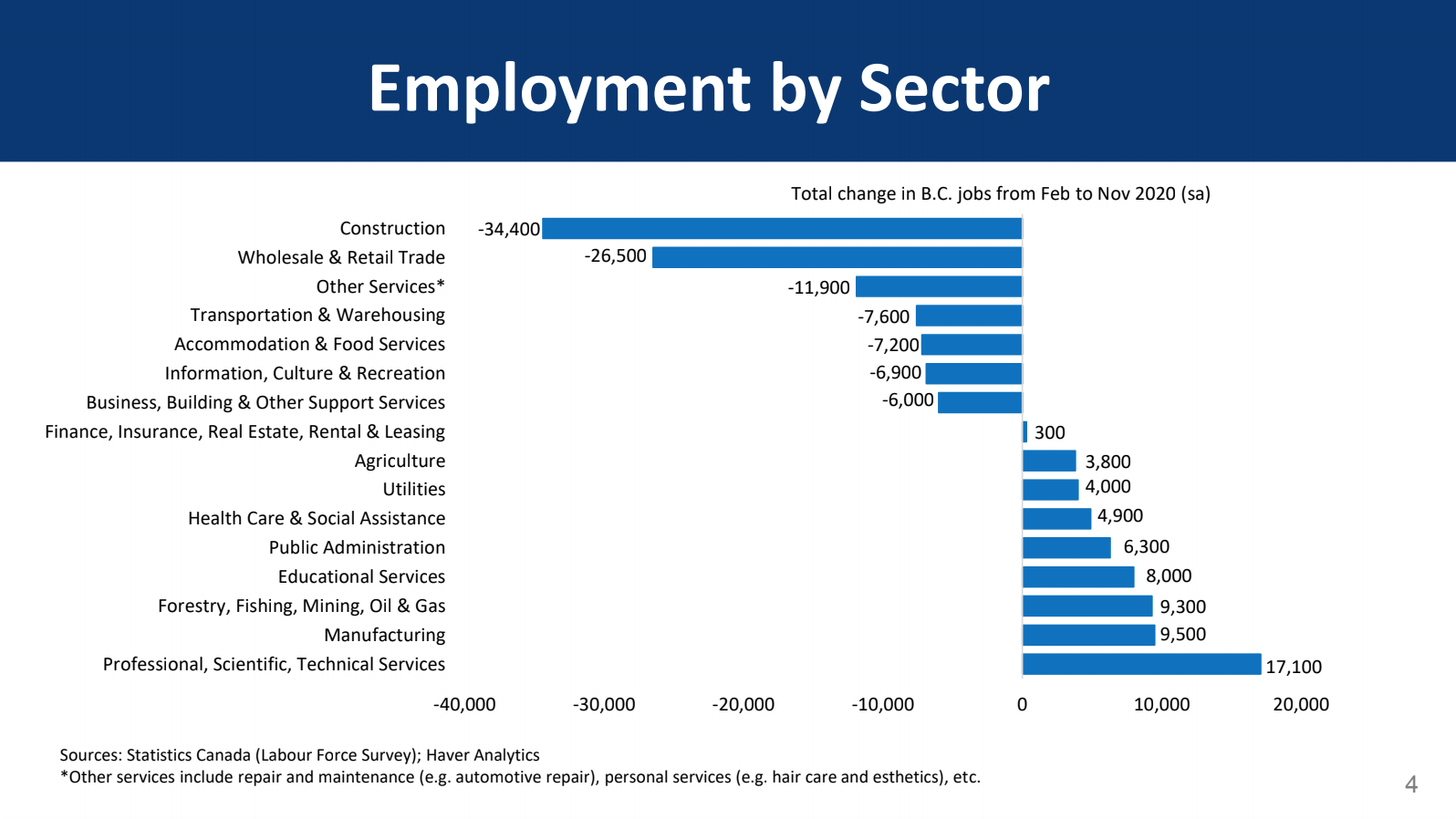The British Columbia is forecasting a $13.6 billion budget deficit, up from $12.8 billion projected back in September.
The increase in deficit is owed to the fact that the province now intends to spend more on COVID-19 recovery, including $1.7 billion allocated to the one-time tax-free payments to be made to individuals and families through the BC Recovery Benefit.
Despite an increased deficit, there are signs of recovery.
The province’s GDP is expected to decline by 6.2 per cent, rather than the 6.7 per cent originally projected earlier this year. GDP is also expected to partially recover next year, growing by 3 per cent overall.
See also: Applications for the $1,000 B.C. Recovery Benefit to open December 18
The unemployment rate is also approaching pre-pandemic levels and, as of November, was at 7.1 per cent. To compare, unemployment rates were at 10.7 per cent in August 2020 and 5 per cent in February.
Workers in some sectors continue to be hit hard by the pandemic, while jobs in other industries have started to recover.

“The impacts of COVID-19 have been experienced right around the globe, and it͛s going to be a while before a fiscal update for B.C. resembles anything like the pre-pandemic province we knew,” said Finance Minister Selina Robinson in a statement on Thursday.
By September, overall consumer spending had even surpassed what they were in February, but some sectors are still suffering. Hardest hit is clothing and clothing accessories sales which are still down by 31.5 per cent.
The food and beverages industry has recovered the most, with sales improving by 14.3 per cent from January to September 2020.
Robinson added that economic recovery in some sectors like tourism and hospitality is contingent upon how quickly Canada and other countries achieve mass immunization against COVID-19.
BC’s revenue has increased by $1.4 million compared to its First Quarterly Report, a change largely driven by property transfer taxes—an indication of a booming real estate market—and federal government transfers.
The next steps for BC’s fiscal plan will be laid out on budget day, April 20, 2021.


